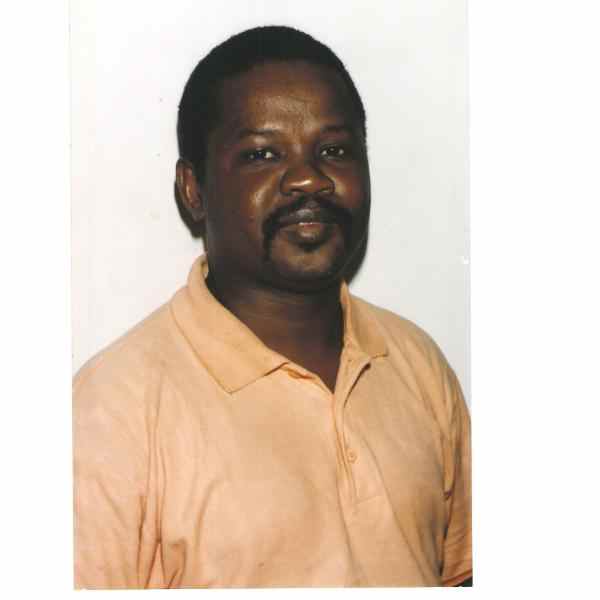Introduction
A medical doctor by training, Garba Hamadoun Cissé has organized his colleagues to volunteer their time and skills to bring specialized medical care to those without access while simultaneously training local medical agents to provide such care in the future.
The New Idea
In a country where thousands of people do not have access to quality medical care, Garba Hamadoun Cissé has created Assistance Médicale Décentralisée (AMD) to bring the services of diverse specialized doctors to socially disadvantaged populations, such as women, children, the elderly, and those living in remote areas or in detention.
With the part-time volunteer assistance of various medical specialists, AMD is able to provide medical services and occasional surgical interventions free of charge to people whose location and/or social conditions would otherwise make such medical care inaccessible. It is the first initiative of its kind to be launched and implemented by Malian specialized doctors on a volunteer basis. Some international endeavors have involved Western doctors intervening temporarily in troubled, war-torn, or disaster areas, but Garba's initiative is a sustainable local venture addressing regular medical needs.
Through AMD, volunteer doctors travel around the country offering specialized medical care and donated medications. At the same time, they provide health awareness programs to the local communities and training to the local medical agents, thus promoting sustainability.
The Problem
In Mali and other countries of West Africa, most medical specialists are concentrated in the large cities. Consequently, destitute populations in distant regions do not have the opportunity of contact with specialists.
Additionally, specialization, often as a result of the necessary equipment, is expensive. Many specialists have been launching private practices in order to effectively earn a living. As this happens, more and more people are excluded from specialized medical care because it is not affordable to them.
Paramedics at the local level are generally poorly equipped to provide necessary medical intervention. There is not enough training available to them to respond to specialized medial needs.
The Strategy
Garba started by convincing ten other medical doctors with diverse specialties to volunteer their time and medical expertise. The eleven of them began small-scale activity in 1998 by visiting nursing homes in Bamako, Mali's capital. These outings allowed them to provide specialized consultations for more than 200 elderly persons. AMD now offers such consultations to people in other parts of the country that are deprived of specialists. AMD specifically targets elderly persons, abandoned or disabled children, and women and young minors in detention.
Each of the specialists working with Garba and AMD is employed either in the public or private sector and devotes a portion of his or her time to AMD on a volunteer basis. In addition, each doctor brings his or her own equipment and work materials. Pharmaceutical companies donate large numbers of medication samples for AMD to provide to its patients when necessary.
Activities are sometimes targeted to one specific specialization or one geographic location. For example, AMD organized a dermatology mission in the northern part of the country. At another time, they sent doctors with a variety of specialties to Gao, a remote desert region of Mali. Earlier this year, doctors visited a detention center for women and minors, where they treated general medical cases but also provided specialized care in gynecology, dermatology, and stomatology to 35 women and 37 minors. In a case where surgical intervention is necessary, the doctors aid the local medical agent with the operation. This provides an opportunity for the specialists to train the community medical personnel.
Additionally, Garba and AMD members promote health education in the communities they visit. Awareness activities include information dissemination and organized educational sessions that address sexually transmitted diseases, AIDS, contraception and hygiene.
Finally, there is an advocacy component to Garba's work. AMD sends reports on the health situation in the locations that its doctors visit to the local and national health departments. These reports serve as a means of keeping the government informed and advocating for better access to medical care and other health-related issues.
Though AMD began in Bamako, it is now able to extend its services to all parts of the country, and Garba is already in the process of extending this reach to other African populations that are isolated or living under conditions unfavorable to easy access to medical specialists. He has made some contacts with colleagues in Senegal and Mauritania who support the idea and are organizing similar activities. Garba also intends to make it possible for AMD to intervene on demand in other countries in the case of disaster or epidemic.
The Person
After completing his general medical studies in Mali, Garba continued specialized studies in obstetrics/gynecology for five years in France. While there, he participated in medical humanitarian missions with the Nobel-prize winning organization Médecins Sans Frontières (Doctors Without Borders).
Since his return home in 1993, Garba has been working in reference health centers and a clinic that he established. In addition, he created the Collège Malien des Praticiens d'Echographie (Malian School of Ultrasound Practitioners), of which he is the president. He also teaches specialized courses in the Bamako School of Public Health.
